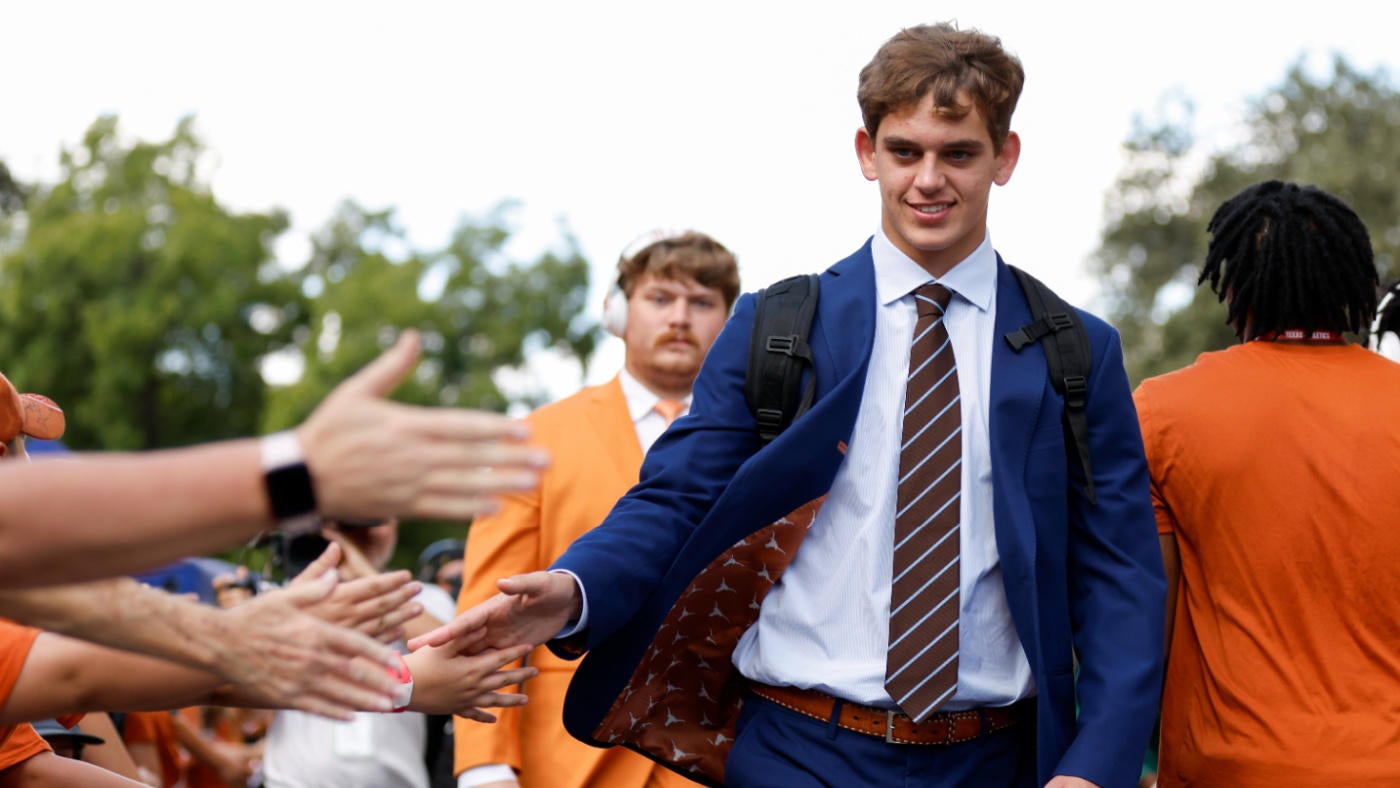It is the story of a non-League club and their rapid rise up the English football pyramid, fuelled by novice owners, savvy social media engagement and U.S. investment.
No, this is not Wrexham . This is Walton & Hersham. Hollywood actors Rob McElhenney and Ryan Reynolds have invested £9million ($11.

8m) in Wrexham since November 2020, securing a documentary and two consecutive promotions to take them two tiers from the Premier League . Walton & Hersham have had to do it a different way. The Surrey-based club, who play close to London’s River Thames, have a strong heritage as an amateur club.
They beat Brighton & Hove Albion 4-0 in the first round of the FA Cup in 1973, while their crowning moment came in the same year when they won the FA Amateur Cup at Wembley in front of a record crowd of 44,000. Advertisement They have flirted with famous names, too. The first Ballon d’Or winner, Sir Stanley Matthews, was club president in the 1980s, Dragons’ Den entrepreneur and former Millwall chairman Theo Paphitis used to be a board member, and the voice of the Premier League for over two decades, Martin Tyler, was part of the coaching staff in 2006.
Come the summer of 2019, however, Walton & Hersham were facing the abyss. They had plummeted to the 10th tier, been evicted from their Stompond Lane home and been reduced to a park team. An increasingly apathetic fanbase had drifted away completely.
Fast forward five years and they are aiming for their fourth promotion in five years. On August 26, they had a crowd of 1,143 for a 3-2 win over Chertsey Town, which put them second in the Southern League Premier South division — the seventh tier of the pyramid, three steps from the English Football League. View this post on Instagram A post shared by Walton & Hersham FC (@waltonhershamfc) Off the pitch, they have accumulated more than one million followers on social media and have launched a sister academy in Florida, run by their new president who was a member of Miami’s 2026 World Cup bid.
How did this miraculous revival happen? Well, like many great British stories, it started with a pint in the local pub...
When Calogero Scannella walked into The Weir one Saturday afternoon in April 2019, he got far more than he bargained for. He did not expect to leave the pub with a plan to buy a football club. He had got chatting with the long-time Walton & Hersham owner Alan Smith, who was resigned to folding the club — more palatable than a plan to merge with Walton Casuals, which was proposed by the only interested suitor at the time.
It triggered something in Scannella. The next morning, six of his mates, who were all 19 and had just finished their first year at university, woke up to find they had been added to a new WhatsApp group. A picture of Brad Pitt in Moneyball alongside the words, “Lads, we’re buying a football club”, greeted them.
Advertisement “I thought it was about Pro Clubs on FIFA, so I left the group chat after two days as I thought it was a joke,” says Sartej Tucker, a friend of Scannella. Despite living in the local area, their knowledge of the team was almost non-existent. It was only two months later when the group were having a kickaround at the club’s £20million ($26.
3m) Elmbridge Xcel Sports Hub that it dawned on Tucker that Walton & Hersham was a real club and this was a serious proposition. Scannella wrote up a list of pros and cons. It was a no-contest.
“Everything was so wrong about it,” he says. “But we had to be clueless because we would never have taken it on otherwise. It made no business sense.
Anyone with two brain cells to rub together would have said, ‘What the f*** is this?’, but we were 19 and thought, ‘Oh, we can buy a football club’.” The owner agreed to a meeting with these seven local teenagers — Scannella, Tucker, Thomas Bradbury, Reme Edetanlen, Ben Madelin, Jack Newton and Stephan Karidis — who had been inseparable since the age of 12 but were scattered all across the country. Their attempts to present themselves as a serious group in Scannella’s parents’ living room were undermined, however — one of the Arsenal fans in the group was watching their match on their phone and another had fallen asleep.
Nevertheless, they were still able to buy the club for £1 on June 3, 2019, becoming the world’s youngest football club owners. Reality soon hit as they realised the previous owner had written off £1.4m of investment.
So they started a new company, trademarking the name and new logo that Tucker had spent the night before his first university exam designing; it was the moment he knew he was hooked. In the first season, they lost around £12,000 but they had been able to split the risk between them — and dip into their student loan funds. Advertisement “Cluelessness,” is how Tucker describes the first year flying by the seat of their pants.
Tucker was studying modern languages at Durham University, Bradbury was studying history and politics at the University of Exeter, Karidis was studying economics at the University of Surrey, Edetanlen economics at the University of Bristol and Madelin geography at Newcastle University. “I was at King’s College doing theoretical physics, apparently,” says Scannella. “I got 20 minutes into the first lecture and thought: ‘I need to get out of here’.
I had to find something else to do so my parents didn’t kill me.” They proceeded on the basis that, if they failed miserably, they would at least have prolonged its existence for an extra year. They achieved much more.
In the first season, the club won promotion after Covid-19 cut short the league and four teams instead of two went up. Then came their first difficult call. Manager George Busumbru had another child on the way and had indicated he might not be able to commit as much time the following season.
They had started sounding out Scott Harris, who was the assistant at Walton Casuals. “George told us to bring someone else in and I remember that night thinking, ‘Are we actually going to have to move this manager on and get a new one in?’,” says Scannella. “This is a real person.
I didn’t know what to say apart from, ‘I think it is our decision’. “We were all on Minecraft when Sartej messaged the group chat saying, ‘What the f*** is going on? I’m on Twitter and our manager has just resigned.’ No one wants to be sacked by 19-year-olds I guess, but he did a great job.
” The appointment of Harris and assistant manager Billy Rowley, who took over this summer, helped them make it three promotions on the trot. Last season, they narrowly missed out on the play-offs, which denied them the chance of achieving what no team in the top 10 divisions of English football has done by making it four in a row. Advertisement Attendances have grown from around 50 in 2019 to an average of around 700.
In May 2023, they sold out all 2,000 seats for the play-off final in half a day and believe they could have managed double. The demand was such that they provided a stream to The Weir, where it all started. The pub had to shut the kitchen at 12:30pm as they had too many orders.
In reconnecting the club with the local community, the single biggest factor was their decision to officially affiliate with the academy. It now has more than 1,300 children and has started feeding the first team, but it had the instant impact of creating emotional investment from families who became regulars. The other lever they pulled was to allow a filmmaker — and parent of a pupil at their old school — to make a mini-documentary.
It generated over one million views and led to them starting a matchday vlog series, which has more than 60million views, as well as live streaming most games for free to several thousand viewers all over the world. “We know that might stop people coming to our games but we have taken the long-term view that if they see the style of play, if it engages them, it is the best possible thing we can do,” says Tucker. Classic Football Shirts was the front-of-shirt sponsor in the 2021-22 season.
That generated exposure but it was a short interview with Sky News in 2021 that caught the attention of a far-flung admirer in Florida. Christopher Corey had been working as liaison to the city of Miami’s World Cup 2026 bid from 2017 but his initial love of football was nurtured in the four years he spent as a child in Welwyn Garden City, north of London. His initial cold call received a lukewarm response, with the owners protective of what they had built.
But after a year of “pestering” on LinkedIn with ideas of how to grow, Corey was welcomed as an equal shareholder and president. Advertisement “Chris is immensely passionate, obsessed with how football is over here and wants to take it over there,” says Tucker. “The American sponsorship market is huge for us too as English football to an American is the holy grail.
You see that with Wrexham. It’s the magic of the English pyramid, which doesn’t exist in a bull****, franchise closed shop that is MLS . “It would never happen in the U.
S. Community-based local teams don’t exist, kids with no money could never do it; the idea you could attract fans by having a good story rather than commercialism.” Corey has taken ownership of a project he hopes will change the pay-to-play barrier that exists in the U.
S, with it often costing between $30,000 and $90,000 per year for one child to play. He launched Walton & Hersham America last month in Palm City, Florida, making the club the first free-to-play academy in the UK & U.S, with 1,000-1,300 children in each system.
The end goal is to offer graduates of the U.S. academy the chance to pair studying in London with playing for Walton & Hersham.
They say they have a verbal commitment for one of the most exciting talents in Florida to join when he is 18. They have developed a strong relationship with Fulham , becoming a trusted home for young talents to gain their first experience on loan. One example is Republic of Ireland under-19 international Tom Olyott, who only left Manchester City ’s academy two years ago and has scored 21 goals in the under-18 Premier League since then.
He will spend this year on loan at Walton & Hersham, while still playing for Fulham’s youth team. View this post on Instagram A post shared by Walton & Hersham FC (@waltonhershamfc) A big reason for that is the style of play implemented, with the majority of the tactical coaching having been done by Rowley, whose 20 years of full-time coaching included spells at Chelsea , Fulham and Millwall’s academies. There was controversy in April, though, when ex-manager Harris announced on X that he had been “fired” with three games to go in the season.
Advertisement Walton & Hersham released a statement saying he had tendered his resignation earlier in the season and they had convinced him to remain until the end of the campaign, but a board review of how the club operates had convinced them a change was needed at the end of the season. Several players left along with the manager, with some angry fans framing it as a sign of immaturity that they could not handle the first failed promotion attempt. “Ultimately, a successful football club cannot be governed by sentiment,” says Tucker.
“Our decision to sack Scott was taken with no prejudice to his achievements. It was based upon a large accumulation of observations in respect to his running of the team across the final two months he was in charge. “All organisations have to make tough decisions to be able to progress in the long run, and it’s clear from the first month of this season that the decision we took was absolutely the right one.
” Walton & Hersham take inspiration from Dorking Wanderers, a club formed in 1999 by two disillusioned Wimbledon supporters. They achieved 12 promotions in 23 years, rising from the 17th to the fifth tier of English football. They have identified that their catchment area on the west flank of Greater London is bigger than that of Burnley and Brentford.
They believe that it is largely untapped due to the pool of 150,000 people in surrounding areas not having any senior clubs — and Walton & Hersham leapfrogging most of their non-League competitors. But how far up the pyramid can Walton & Hersham go? How high do they want to go? “My dream has always been to get the club to a full-time status. There is nothing else I want to be doing other than this,” says Scannella, who concedes he has had to “freeload” off his parents to build Walton & Hersham, a cause helped by them taking over the running of the academy.
Advertisement The only ceiling is a financial one as each step up requires an injection of investment to be able to compete. Self-sustainability remains the business model and they are now setting their sights on building a visible presence in the community, having grown attendance organically through word of mouth and social media. “Momentum is always part of it, but we have built solid foundations,” says Tucker.
“People are invested because of what the club is becoming, not because we are winning every week. We have brought people out of the woodwork who hadn’t come to a game in 30 or 40 years.” Few people have five years of experience running a football club, create a new five-year plan and are still in their 20s by the time that has come to fruition.
But that is the luxury they have. “This club can, within the next four or five years, be a very successful club in the National League,” says Tucker. “We’re not going to be one of those who say we are going to get to the Football League in X years.
If we get there, then it is great but it will be a byproduct of doing everything else well. It isn’t the target.” Tucker and Scannella are self-deprecating enough to laugh at the absurdity of it all: the temerity to even think about taking over a football club as teenagers.
Some will still choose to characterise them as football’s The Inbetweeners, but they do not care much for perception. They are encyclopaedic about every fact and figure that has ever decided anything over the past five years. Yes, there is the occasional moment they may stray into grandiose territory, such as when the chat turns to how Roman Abramovich’s ‘benevolent dictatorship’ model is the only way to run a club, but who can blame them? They have taken a teenage fantasy and turned it into a burgeoning community club that is eyeing up the English Football League.
You get the sense they are only getting started. (Top photo: Walton & Hersham).



















